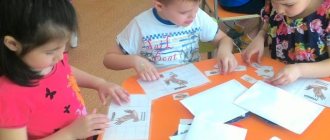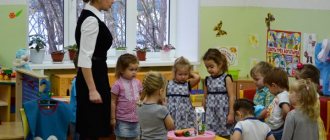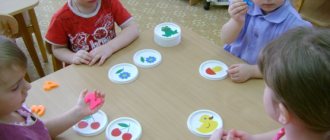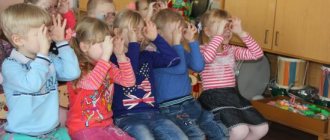Nursery rhymes for children. Falling asleep with nursery rhymes
In addition to lullabies, folklore has many nursery rhymes to prepare a child for sleep and calm him down if he is overexcited.
You can recite them or sing them. Ay, bye, bye, bye, you're a dog, don't bark! You, cow, don't moo! You rooster, don't crow! And our boy will sleep, and will close his eyes.
Oh, little lyulenki and lyulenki, a deer is walking through the mountains. He carries slumber on his horns, and brings it into every house. He puts the nap in the cradle, quietly sings a song: (we repeat the nursery rhyme)
Oh, you are my darling, White Pillow! If we live together with you, then we don’t need to go to the cinema! Lay down and fall asleep, watch a movie, After all, they will show it anyway! Oh, you are my darling, White Pillow!
Bye-bye, bye-bye, salmon fish, come! Salmon fish, come and wait for Alexei. Alexeyka will grow up and go to the sea with her dad. He will begin to catch salmon, he will begin to feed his mother.
Bye-bye, bye-bye, Grandfather Mamai came to us, Grandfather Mamai came to us, Asks: “Give me back Mashenka!” But we won’t give Masha, it will be useful to us ourselves.
Bye-bye, fall asleep, Katyushka, My merry little bunny, Close your eyes little bunny, Bye-bye-bye-bye.
Bye-bye-bye, There are little bunnies in the garden. Bunnies eat grass, Little children are told to sleep.
Bye-bye-bye, the seagulls have arrived. They began to flap their wings, putting our Katya to sleep.
Bye, bye, bye, bye, You little dog, don’t bark. Whitepaw don't whine, don't wake up our daughter. It’s a dark night, we can’t sleep, our daughter is afraid.
Bye-bye-bye-bye, You've already drunk tea, You've eaten porridge and played enough, You've been naughty, you've been chatting, So now go to sleep, Bye-bye-bye-bye. Here the Talkative Magpie sat down on the gate: Kra-kra-kra-kra! It’s time for the little one to sleep!” The pigeons looked out the windows: “Guli-guli - guli-guli, The little one needs to sleep, so as not to oversleep in the morning.” I bay, bay, bay, how I love my child!
Bye-bye-bye-bye, Don’t lie down on the edge - A little gray top will come, He will grab you by the barrel, He will grab you by the barrel, And drag you into the woods, And drag you into the woods, Under the broom bush. You, little top, don’t come to us, don’t wake up our Katya!
Here are the Pink Heels lying in the crib. Whose heels are these - soft and sweet? The goslings will come running and pinch your heels. Hide quickly, don’t yawn, cover with a blanket!
The distant forest stands like a wall, And in the forest, in the depths of the forest, an owl sits on a branch, Sleepy grass grows there. They say sleepy grass knows sleepy words. As soon as he whispers his words, his head immediately hangs. Today I will ask the owl for such grass. Let the grass tell you sleepy words.
It’s evening outside the window, And there’s a month in the sky... The baby is sleeping in the crib, The horse is sleeping in the stall, The squirrel is in the hollow, The dog is in the kennel. Well, the sun will wake up, the baby will smile at his mother. It will be a fun day. Grow your baby healthy.
Go to sleep, sleep, my Katyushka. Sleep, my little pig, close your eyes, bye-bye-bye.
Like in our den there are Three barrels of honey, Like our children have Sweet paws... The first dream is buckwheat, And the second is flowery, And when the month comes out - I will dream of Linden. For sleepyheads and those with a sweet tooth, for spoiled bullies, for bear children - Blessings in the ear!
Summary of a game lesson in the younger group of kindergarten. Journey to the land of Russian nursery rhymes
Game activity for children of primary preschool age “Journey to the wonderful land of Russian nursery rhymes.”
The methodological development is intended for educators working with children of primary preschool age (3-4 years).
Goal: Instilling a love for Russian folk art, emotional responsiveness to reading nursery rhymes. Objectives: Help remember nursery rhymes learned earlier, teach to read loudly, expressively, pronouncing words. Teach children to answer questions and form diminutive nouns. To develop the expressiveness of speech, contribute to the formation of a sound culture of speech, develop memory, and activate adjectives in children’s vocabulary that describe the external signs of animals. Develop communicative communication using folklore. To cultivate respect for the living, apt folk word, for the creativity of the Russian people. Arouse a feeling of sympathy for familiar characters, create a joyful mood from meeting them. Preliminary work: Reading nursery rhymes, memorizing them, playing out nursery rhymes, poems, excerpts from fairy tales, guessing riddles, looking at illustrations and paintings, replenishing vocabulary, activating it. Materials and equipment: Toys: cat, bear, squirrel, hare; hats - bunny masks. Methodical techniques: Artistic word.
Conversation. Show. Joint activities between the teacher and the children. Question answer. A game. Introduction of a literary character. Progress of the lesson:
Educator: In the old days, on long winter evenings or after a summer working day, when the gardens were dug up and plowed, people gathered for gatherings, where they spun, knitted, embroidered, and always sang their favorite songs, ditties, teases, jokes, jokes, told each other nursery rhymes. It was more fun to work this way, the evening passed faster and more unnoticed, and the work went smoothly. It has long been said: “Fun and work live side by side.” And I invite you to the wonderful land of Russian nursery rhymes. So, let's hit the road. The carriages and carriages rumble along the rails. They are taking a group of children to the country of Nursery rhymes. We go, we go, we go to distant lands, Cheerful guys and best friends.
Educator: Here we are at our first stop! Here the cat meets us. Hello, cat! You're kind of sad today. Educator: (Indirectly on behalf of the cat) “Hello, guys! I’ve been living with you for a long time and every day you talked about yourself, about your games, but you didn’t say anything about me, so I became sad.” Educator: Children, do you agree to help the cat? (children's answers) Educator: Let's sit down on the carpet with the cat and continue our conversation. How can we help the cat? (children's answers). Educator: That's right, we need to cheer up the cat so that he doesn't get sad. What can we do about this? Children's answers. Educator: We also know a Russian folk nursery rhyme about the cat. Let's tell it to the cat. Kitty, now we’ll give you a concert, the children will take turns reading you a nursery rhyme. But whoever will read will be chosen by the cat. Whoever he touches with his paw will read the nursery rhyme.
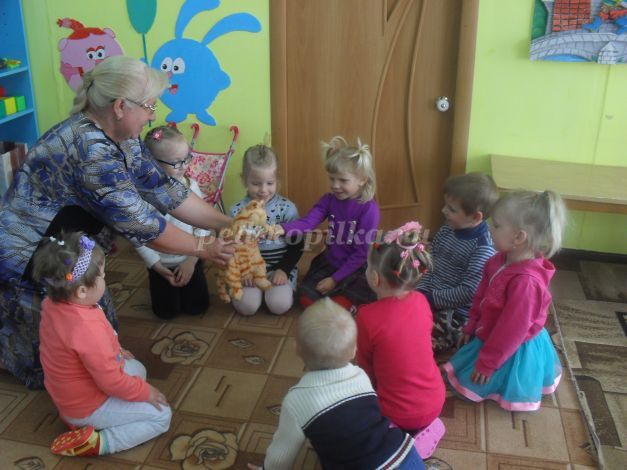
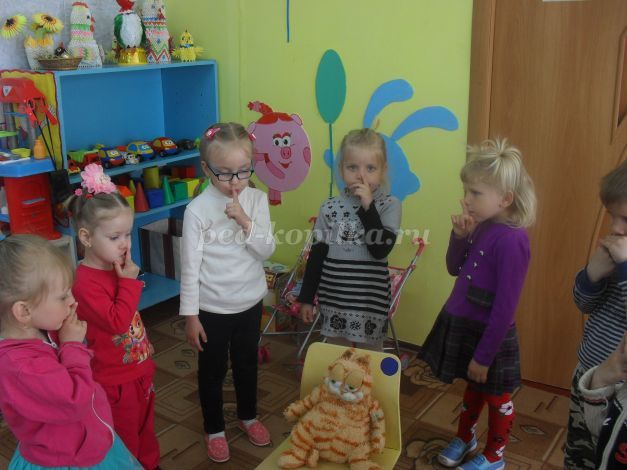
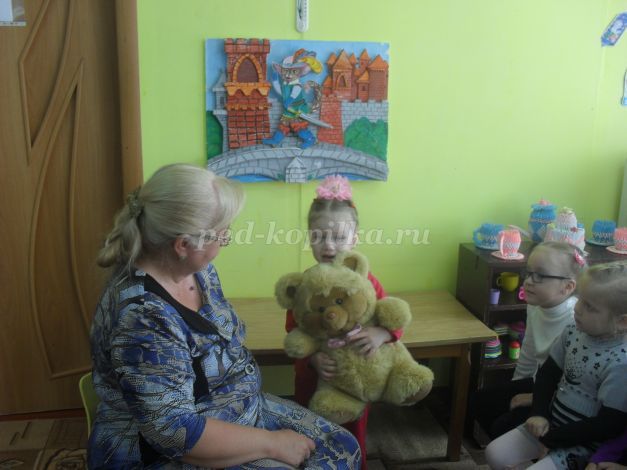
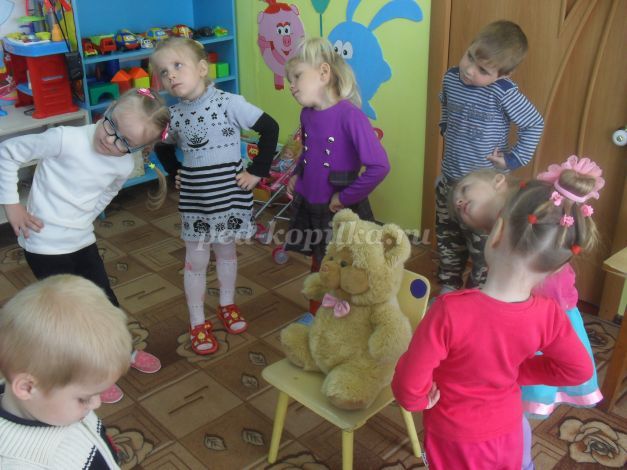
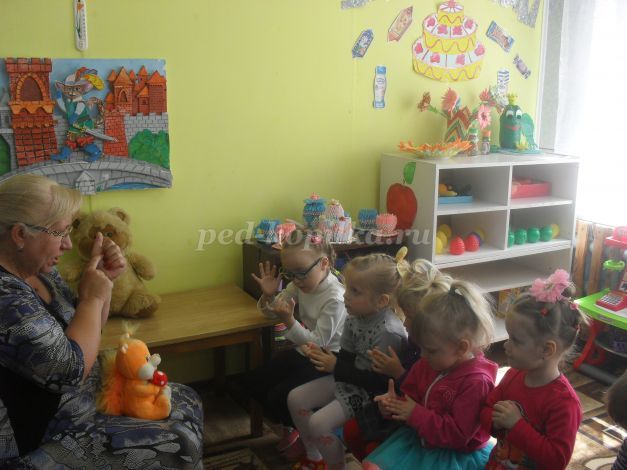
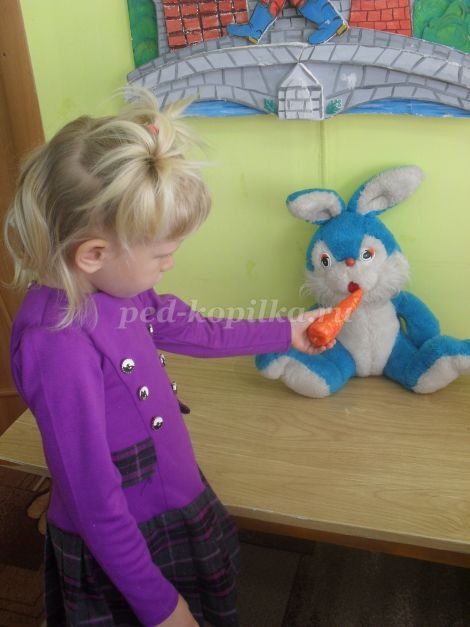

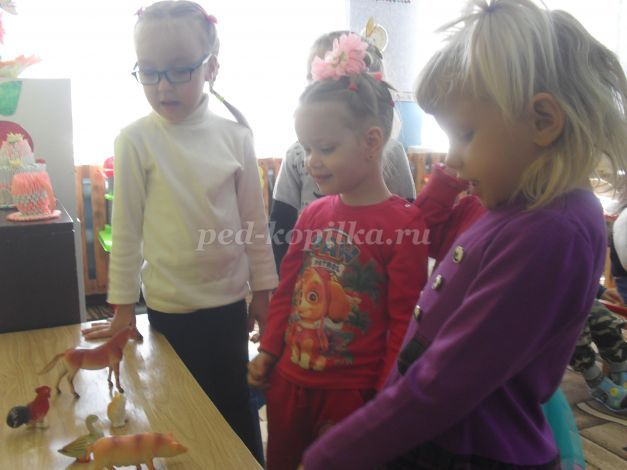
We recommend watching:
Advice for young mothers Development of the emotionality of young children through familiarity with Russian folklore An activity for preschool children using play therapy. Abstract: Nurturing cultural and hygienic skills in young children using artistic expression
Similar articles:
Nursery rhymes for children
Nursery rhymes for kids about vegetables, fruits and various foods
Russian folk nursery rhymes for children 2-3 years old
Russian folk songs and nursery rhymes for children
Rhymes with movements for the little ones

